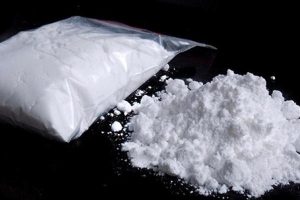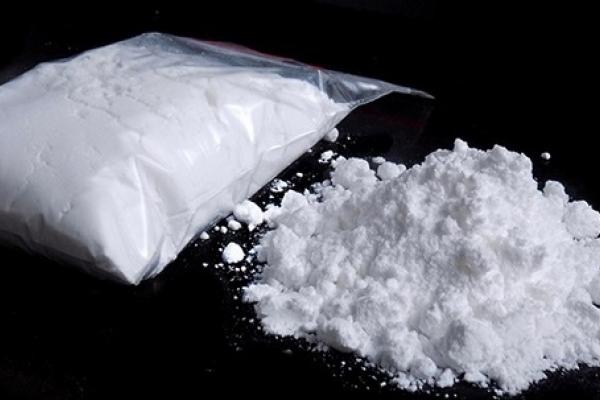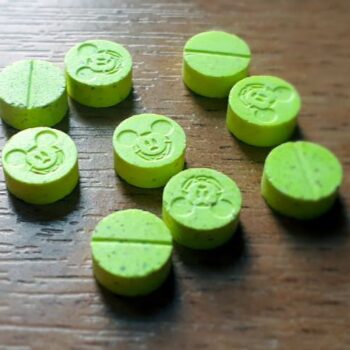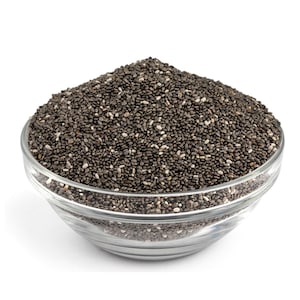FENTANYL POWDER
$300.00
.
Fentanyl Powder: An In-Depth Overview
Description:
Fentanyl powder is a potent synthetic opioid that has become a significant concern in the ongoing opioid crisis. Originally developed for medical use, fentanyl is now widely associated with illicit drug use and overdose deaths. This article will explore the nature of fentanyl powder, its effects, risks, legal status, and the broader implications for public health.
What is Fentanyl Powder?
Fentanyl is a synthetic opioid that is 50 to 100 times more potent than morphine. It is primarily used in medical settings for pain management, particularly for patients with severe pain, such as those undergoing surgery or suffering from cancer. Fentanyl is a form of the drug that can be illicitly manufactured and sold on the black market, often mixed with other substances, leading to increased risks of overdose and death.

How is Fentanyl Powder Used?
Fentanyl can be ingested in various ways, including snorting, smoking, or injecting. It is often mixed with other drugs, such as heroin or cocaine, to enhance potency. This practice significantly increases the risk of overdose, as users may be unaware of the presence of fentanyl in the substances they consume. The rapid onset of effects can lead to a false sense of security, prompting users to take more than they should.
Effects of Fentanyl Powder
The effects of fentanyl are similar to those of other opioids, including pain relief, euphoria, and sedation. However, due to its potency, even a small amount can lead to severe respiratory depression, which can be fatal. Other side effects may include confusion, dizziness, nausea, and constipation. The risk of overdose is particularly high, especially when combined with other depressants.
Signs of Fentanyl Overdose
Recognizing the signs of a fentanyl overdose is crucial for timely intervention. Symptoms may include:
– Difficulty breathing or shallow breathing
– Unresponsiveness or inability to wake up
– Blue or purple tint to the lips or fingertips
– Pinpoint pupils
– Cold and clammy skin
If someone exhibits these symptoms, it is essential to call emergency services immediately and administer naloxone if available.

Legal Status of Fentanyl Powder
Fentanyl is classified as a Schedule II controlled substance in the United States, meaning it is available only through a prescription. However, illicitly manufactured fentanyl powder is often sold illegally, contributing to the opioid crisis. Law enforcement agencies are actively working to combat the trafficking of fentanyl and its analogs, which are often designed to evade legal restrictions.
The Opioid Crisis and Fentanyl
The rise of fentanyl is a significant factor in the ongoing opioid crisis. Overdose deaths involving synthetic opioids, primarily fentanyl, have surged in recent years. According to the Centers for Disease Control and Prevention (CDC), fentanyl was involved in nearly 70% of all opioid overdose deaths in 2021. This alarming trend highlights the urgent need for effective prevention and treatment strategies.
Prevention and Harm Reduction
Efforts to address the fentanyl crisis include harm reduction strategies, such as providing access to naloxone, a medication that can reverse opioid overdoses. Education on the risks of fentanyl and the importance of using drugs safely is also crucial. Additionally, increasing access to addiction treatment services can help individuals struggling with substance use disorders.
Treatment for Fentanyl Addiction
Treatment for fentanyl addiction typically involves a combination of medication-assisted treatment (MAT) and behavioral therapies. Medications such as buprenorphine and methadone can help manage withdrawal symptoms and cravings. Behavioral therapies, including cognitive-behavioral therapy (CBT) and contingency management, can support individuals in their recovery journey.
The Role of Law Enforcement
Law enforcement plays a critical role in combating the fentanyl crisis. Efforts include targeting drug trafficking organizations, increasing penalties for fentanyl distribution, and collaborating with public health agencies to address the issue comprehensively. Community outreach and education initiatives can also help raise awareness about the dangers of fentanyl. fentanyl lollipop.
Public Health Implications
The widespread availability of fentanyl powder poses significant public health challenges. Overdose deaths strain healthcare systems and impact communities. Addressing the fentanyl crisis requires a multifaceted approach that includes prevention, treatment, and law enforcement efforts. Public health campaigns aimed at educating the public about the risks of fentanyl are essential for reducing stigma and promoting safer practices. FENTANYL POWDER for sale.

Frequently Asked Questions
1. What is fentanyl powder?
Fentanyl powder is a potent synthetic opioid that is often illicitly manufactured and sold on the black market. It is significantly more potent than morphine and is associated with a high risk of overdose.
2. How is fentanyl powder used?
Fentanyl powder can be ingested by snorting, smoking, or injecting. It is often mixed with other drugs, increasing the risk of overdose.
3. What are the signs of a fentanyl overdose?
Signs of a fentanyl overdose include difficulty breathing, unresponsiveness, blue or purple lips, pinpoint pupils, and cold skin.
4. Is fentanyl legal?
Fentanyl is a Schedule II controlled substance, available only through a prescription. Illicitly manufactured fentanyl is illegal and contributes to the opioid crisis.
5. How can fentanyl addiction be treated?
Treatment for fentanyl addiction typically involves medication-assisted treatment and behavioral therapies to manage withdrawal symptoms and support recovery.
Conclusion
Fentanyl powder represents a significant challenge in the context of the opioid crisis. Its potency and potential for overdose make it a dangerous substance, particularly when mixed with other drugs. Understanding the risks associated with fentanyl, recognizing the signs of overdose, and promoting effective prevention and treatment strategies are essential steps in addressing this public health issue. By raising awareness and providing resources, communities can work together to combat the fentanyl crisis and support those affected by addiction. powder fentanyl.
Be the first to review “FENTANYL POWDER” Cancel reply
Related products
MDMA
MDMA
Other Psychedelic
Psilocybin Edibles
Psilocybin Mushrooms
Other Psychedelic
MDMA
Other Psychedelic












Reviews
There are no reviews yet.